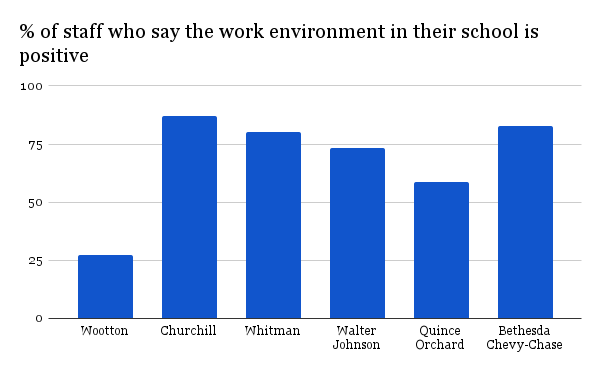Last year, MCPS officials announced that schools would no longer be required to give semester exams. The majority of students were pleased with this new rule, yet this happiness quickly faded when students found out that semester exams would be replaced with “required quarterly assessments,” or RQAs.
RQAs are exams that teachers create themselves to test students on content that they feel students should have mastered by the end of the quarter. The exams account for 10 percent of students’ quarter grades, unlike semester exams which were 25 percent of the final grade. “While we can’t control the outside assessments that are imposed on us, we can control the assessments we impose on our kids,” Board of Education President Patricia O’Neill said according to washingtonpost.com. “We’re trying to regain more instructional time. Parents and educators want more teaching and less testing.”
This new system, though well intended, has not had the desired effects, and therefore has not been that popular amongst teachers.
Some teachers feel that abolishing semester exams doesn’t prepare students well enough for college. “For kids, semester exams were beneficial because they prepared students for college,” chemistry teacher Jacqueline Alton said. “Anyone who goes to college without experiencing how to study for a two-hour exam period is not going to be as prepared.”
For AP classes, the semester exam system seemed to work better in preparing the students for the AP exams, as they were a good indicator of how students would perform in May. “I prefer semester exams because the classes I teach are APs so giving a semester exam prepared my students better for the actual AP exam,” AP NSL and Economics teacher Christopher McTamany said.
The decision to remove semester exams from the curriculum was due to the growing concern that students were being tested excessively and that exam week was taking away from instructional time. However, the RQAs are not giving the intended results. “They got rid of finals for more instructional days but in reality, the RQAs have been taking up more days to administer and get the kids ready for,” Alton said.
For some teachers though, the few extra instructional days they do gain with the removal of exam week are not as helpful as they thought. “The test is a few days before the semester ends so we have a few extra days, but in reality I can’t do a whole lot because some people aren’t taking Macroeconomics the second semester,” McTamany said.
Students also have RQAs on the same day as quizzes or tests, so they are not being tested any less. “I have had several RQAs in the same week, which was kind of stressful,” senior Gurbani Singh said.
Teachers are aware of this and realize that RQAs have not been making students’ lives more stress free. “RQAs have added a tremendous amount of stress on kids. With finals, you studied and you were done. Now everything is together,” Alton added.
While the goal of the RQAs was to reduce student stress and increase instructional time, they have not been able to fully accomplish that. Students still feel overwhelmed with tests, and teachers do not have that many extra days to utilize. “While it was a good attempt, if the goal was to reduce stress, I do not think we hit the mark,” Alton said.
Maria Hafeez
Editor-in-Chief






![Editors-in-Chief Ahmed Ibrahim, Helen Manolis, Cameron Cowen, Alex Grainger, Emory Scofield, Hayley Gottesman, Rebekah Buchman and Marley Hoffman create the first print magazine of the year during the October press days. “Only a quarter of the schools in MCPS have programs that are like ours, a thriving, robust program. That makes me really sad. This is not just good for [the student journalists] to be doing this, it’s good for the entire community. What [student journalists] provide to the community is a faith in journalism and that continues for their lifetimes," Starr said.](https://woottoncommonsense.com/wp-content/uploads/2025/10/wmpoFTZkCPiVA3YXA4tnGoSsZ4KmnKYBIfr18p3l-900x1200.jpg)

